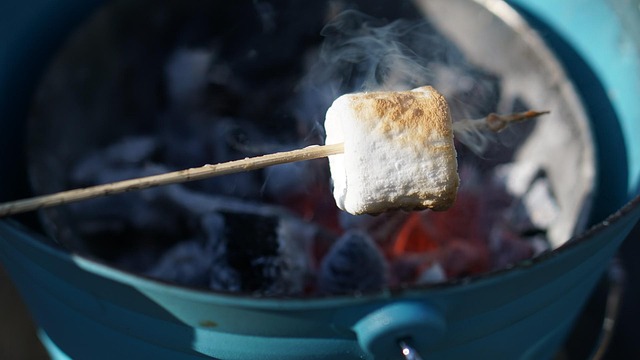Malaysian Kratom Buds (Mitragyna speciosa) is a natural herb with potential therapeutic benefits, attracting interest from the military as an alternative pain management and stress relief tool. While some branches explore its use, others are cautious due to limited research on long-term effects, including addiction concerns. The military's stance on kratom testing remains mixed; it may be prompted in specific circumstances but isn't routinely included in comprehensive drug screenings unless issues arise in regions where it's readily available. Kratom's legal status varies globally, and responsible use requires consulting healthcare professionals, staying informed about research and guidelines, and being vigilant against counterfeit or contaminated products.
“Explore the fascinating world of Malaysian Kratom Buds, a potent natural extract gaining global attention. This article delves into the intricacies of this herbal substance, offering insights into its unique properties and growing popularity. From its origins in Malaysia to its rise in military and civilian circles, we explore whether the military tests for kratom and uncover essential safety considerations for those interested in its use. Understand the science, the controversies, and the responsible approach to this powerful plant.”
- What are Malaysian Kratom Buds?
- The Military and Kratom Testing: A Comprehensive Overview
- Safety Considerations for Kratom Use
What are Malaysian Kratom Buds?
Malaysian Kratom Buds, also known as Mitragyna speciosa or simply “Kratom,” are a type of natural herb native to Southeast Asia, particularly Malaysia, Thailand, and Indonesia. These buds are derived from the leaves of the Kratom tree and have gained global attention for their unique properties and potential benefits. The plant contains various alkaloids, with mitragine and 7-hydroxymitragine being the most significant, offering a range of effects on the body and mind.
In military settings, Malaysian Kratom Buds have sparked interest due to their potential as a natural alternative for pain management and stress relief. Some units have experimented with kratom as a non-pharmaceutical option for soldiers suffering from chronic pain or post-traumatic stress disorder (PTSD). However, it’s essential to note that the military’s stance on kratom is evolving; while some branches conduct research and tests, others remain cautious due to limited scientific consensus on its long-term effects, especially regarding issues like addiction and dependence. The topic of whether the military tests for kratom reflects ongoing debates about natural remedies and their role in modern warfare and healthcare.
The Military and Kratom Testing: A Comprehensive Overview
The issue of whether the military tests for kratom has gained significant attention, especially among service members and those closely tied to the forces. Kratom, a natural herb with a growing popularity for its potential pain-relieving and mood-enhancing effects, has sparked debates due to its controversial legal status in many countries. In the context of the military, where strict drug policies are enforced to maintain discipline and safety, the question arises: do they test for kratom?
Comprehensive testing protocols within the military focus on substances that pose risks to operational readiness and health. While kratom’s effects may vary among individuals, there is currently no conclusive evidence to suggest widespread misuse or adverse reactions severe enough to prompt mandatory testing. However, specific branches of the military, particularly those operating in regions where kratom is readily available, may conduct targeted testing when suspected abuse or its potential impact on mission performance arises. This approach ensures a balanced perspective on kratom’s role, considering both individual health and operational demands.
Safety Considerations for Kratom Use
Kratom, a natural substance derived from the leaves of the Mitragyna speciosa plant, has gained popularity worldwide. However, it’s crucial to approach its use with caution, especially considering the varying legal statuses across countries. Safety is paramount, and users must be aware of potential risks. One common question that arises is whether military personnel are tested for kratom use. While specific policies vary by country and branch, many militaries do conduct random drug screenings, including for substances like kratom, as part of their fitness and readiness assessments. This underscores the importance of understanding local laws and being mindful of potential consequences, especially for those in high-risk professions.
For responsible kratom use, it’s essential to consult with healthcare professionals who can provide guidance on appropriate dosages and any potential interactions with medications. Additionally, staying informed about research and guidelines related to kratom safety is vital. Users should also be vigilant for counterfeit or contaminated products, as these could pose significant health risks. Prioritizing safety measures ensures that individuals can enjoy the intended benefits of kratom without adverse effects.
Malaysian Kratom Buds, a potent strain known for its unique properties, have sparked interest, especially with their potential benefits. However, it’s crucial to approach them with caution, especially considering the ongoing debates about their safety and legality. The military’s involvement in kratom testing highlights the need for comprehensive research to understand fully the effects of this substance. While some may use kratom for its perceived advantages, prioritizing safety and being aware of local regulations is essential. Staying informed ensures responsible use, particularly given concerns about purity and potential risks, especially when considering that even the military tests for kratom to ensure safe deployment.














